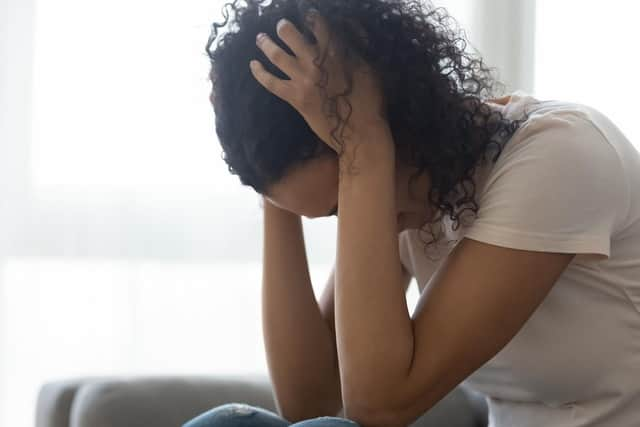Dramatic drop in Northamptonshire mental health referrals during coronavirus pandemic revealed
and live on Freeview channel 276
Mental health referrals in Northamptonshire have fallen dramatically during the coronavirus pandemic, leading to fears people are not getting the help they need.
The number of referrals to the NHS improving access to psychological therapies (IAPT) programme in the Northamptonshire Clinical Commissioning Group (NCCG) area dropped by 19.7 per cent last year.
Advertisement
Hide AdAdvertisement
Hide AdThe figures, published by NHS Digital, show 10,850 people were referred for treatment between February and November 2020 compared to 13,515 in the same period in 2019 – a decrease of 2,665.


Mind said it is concerned that many people are not getting the help they need now, which could worsen their health and lead to increased pressure on services down the line.
Leila Reyburn, the mental health charity's policy and campaigns manager, said: “The coronavirus pandemic is affecting all of our lives, especially those of us living with mental health problems.
“We’re concerned that without the right support more people may reach a crisis point for their mental health, requiring more expensive and intensive treatment, further down the line.
Advertisement
Hide AdAdvertisement
Hide Ad“More needs to be done to understand this drop, but we’re concerned too many people who could benefit from therapy are not getting the help they need, and a future increase in demand could result in lengthy and varied waiting times, depending where you live.”
But NCCG pointed out that rates have been steadily rising, often back to or above pre-Covid levels, partly due to the improvements in online and telephone treatments.
The 24/7 mental health telephone support line has been receiving approximately 6,000 calls a month, ensuring residents have a safe way to access the mental health services they need, a NCCG spokesperson added.
“Northamptonshire NHS remains conscious that the pandemic has compounded a number of health and care issues for our population – including financial worry, education anxiety, bereavement and trauma," they continued.
Advertisement
Hide AdAdvertisement
Hide Ad"As we look forward to a safe, measured lifting of social restrictions, we are also aware that this may result in an increase in people seeking mental health support.
"We have promoted our services through various means, including roadside LED signs, on petrol pumps, through schools and various social media platforms.
"We have also expanded capacity and resource across a spectrum of mental health service in our area, and will continue to do so to ensure our residents get rapid access to the support they require."
Across England more than a quarter of a million fewer people accessed talking therapy during the pandemic, with figures for November showing referrals dropped sharply when the second national lockdown was brought in.
Advertisement
Hide AdAdvertisement
Hide AdThe IAPT service provides short-term talking therapy for adults with anxiety disorders, depression or stress. Patients can refer themselves or go through a GP.
Referrals had recovered towards 2019 levels by October, when they were down by only six per cent, but fell sharply again in November, to 15 per cent below 2019 levels.
This corresponded with a four-week lockdown in England, between November 5 and December 2, prompted by a surge in cases during October.
Ms Reyburn said it was important the NHS and Government ensure people know mental health services are still open, and that service providers should recognise non face-to-face support may not work for everyone.
Advertisement
Hide AdAdvertisement
Hide Ad“What works will vary from person to person, so people need to be given a choice of treatment tailored to meet their needs,” she said.
“This includes making sure people are offered culturally appropriate, trauma and gender informed support
“Some people will benefit from receiving therapy digitally, but others worry about issues like connectivity, building relationships and confidentiality.
“Services need to understand that, even for those who are not strictly digitally excluded, non-face-to-face support may not work for them.
Advertisement
Hide AdAdvertisement
Hide Ad“This is particularly important for young people. In Mind’s survey of 16,000 people, young people were nearly twice as likely to say that they feel uncomfortable using phone or video call technology to access mental health support.
"Almost a third of young people who accessed or tried to access support said that the technology was a barrier to doing so, in comparison to 17 per cent of adults.”
An NH spokesperson said: “The NHS has been open to people with concerns about their mental health throughout the pandemic, including through talking therapy sessions, which the public can self-refer onto for both face-to-face and online sessions and referrals are now rapidly increasing.
“It has been a tough year, but the NHS is here to help, so anyone who is struggling should come forward for the help they need.”